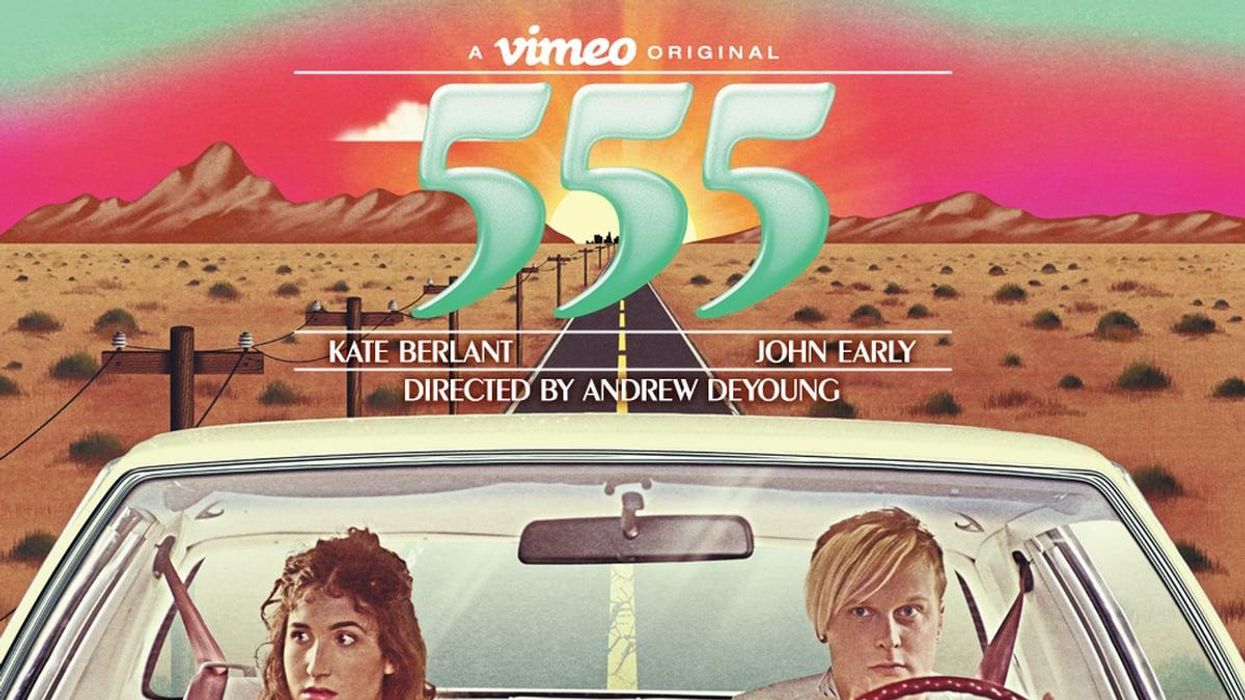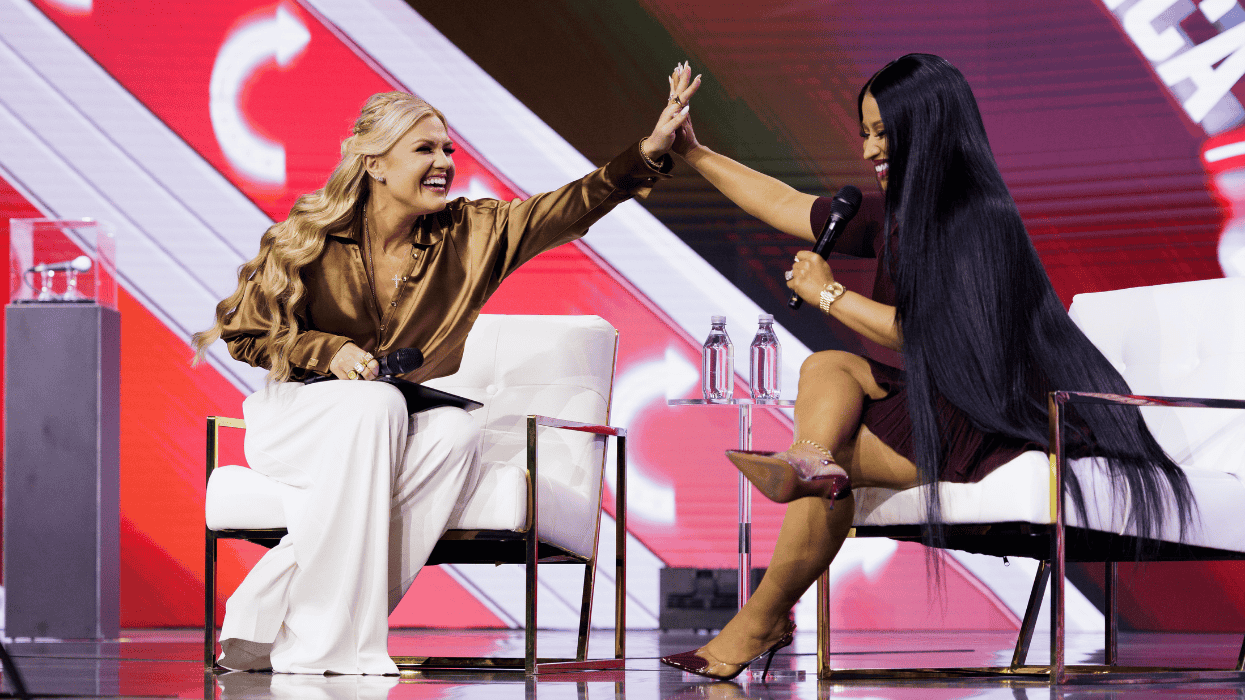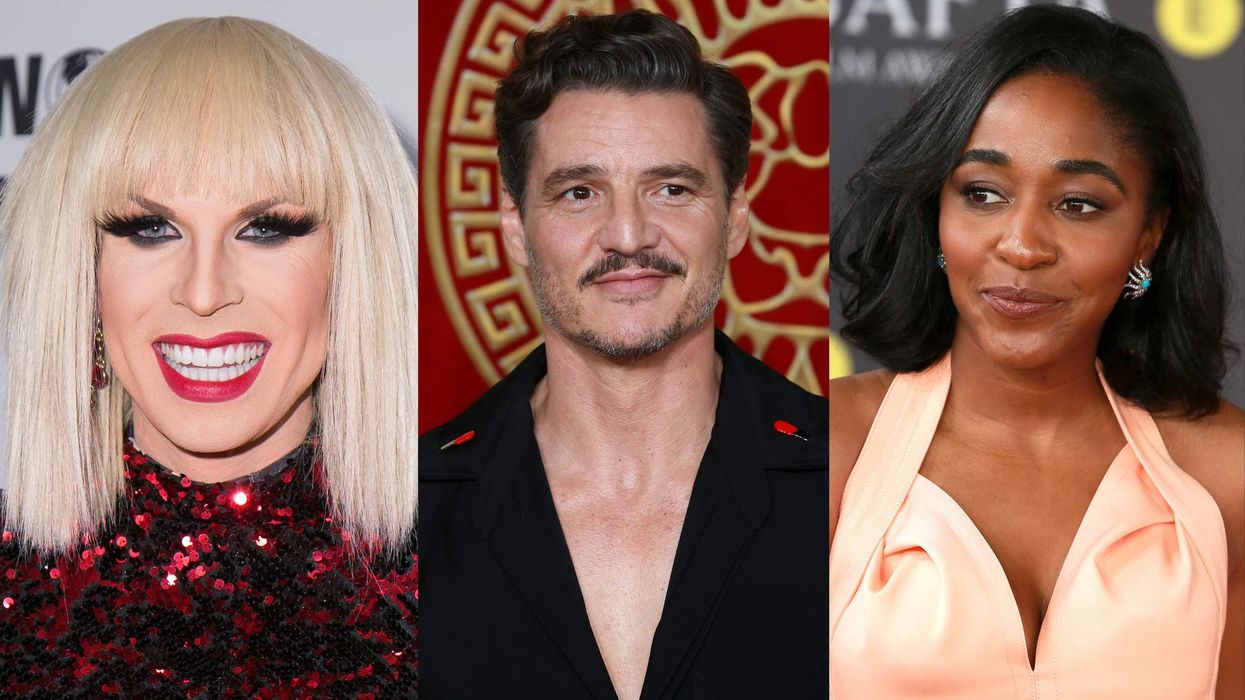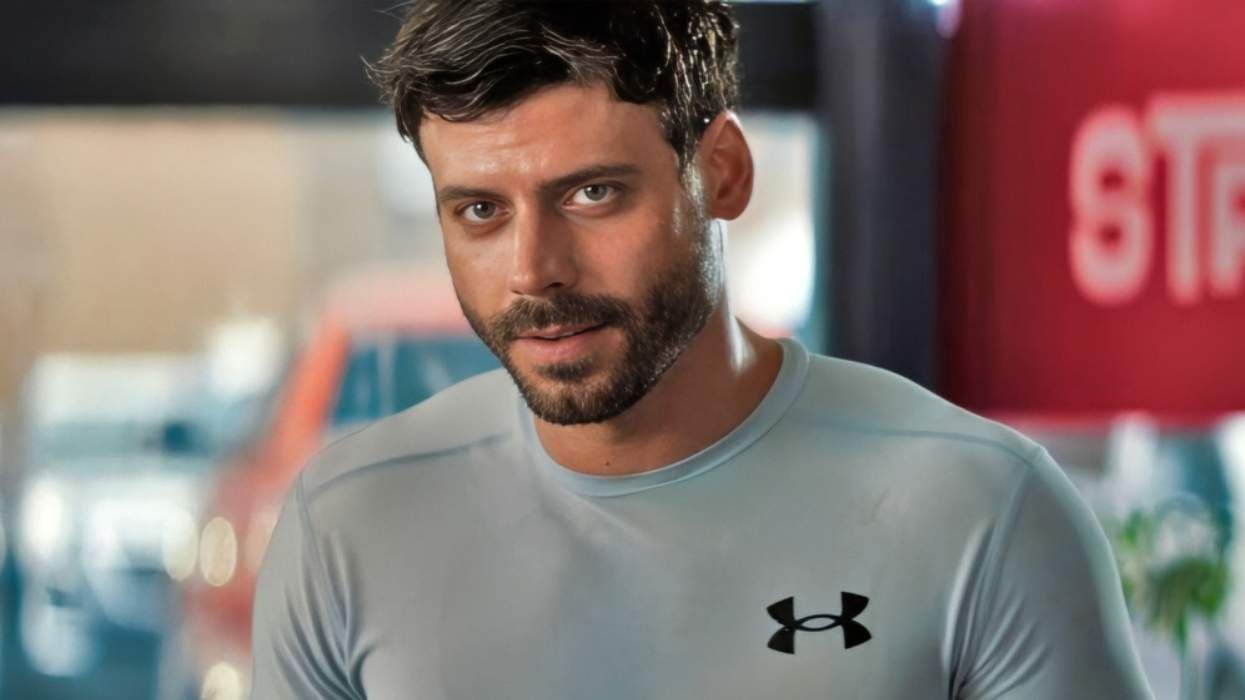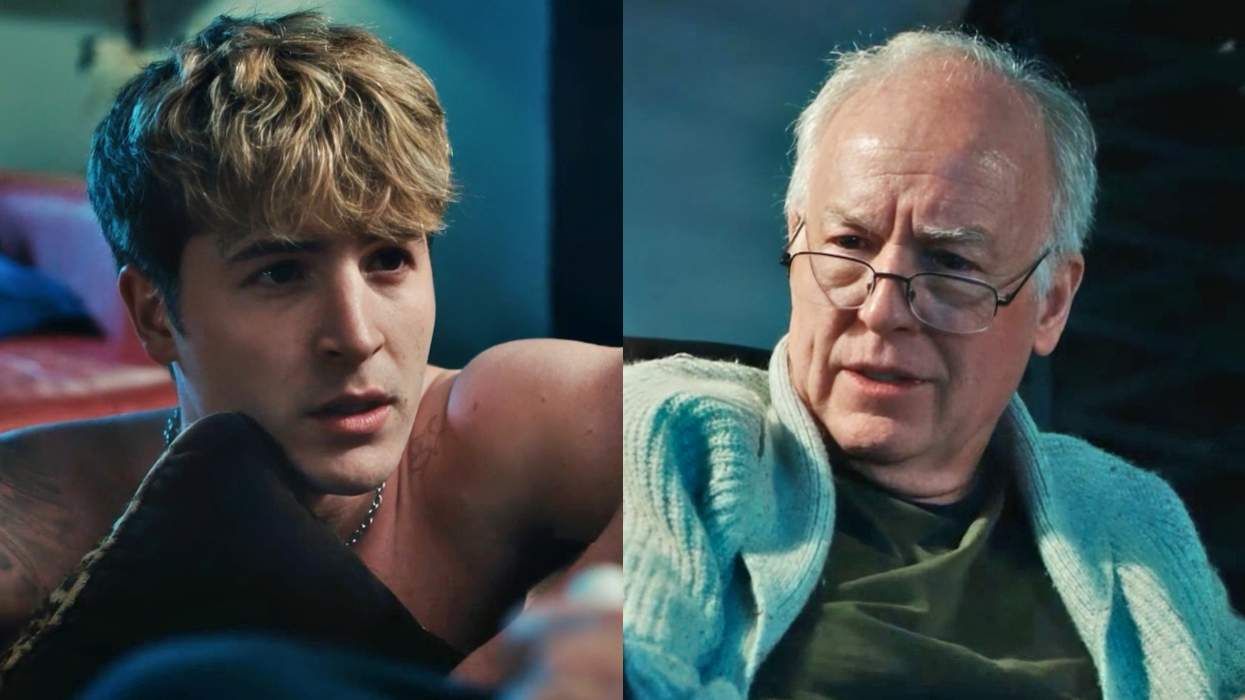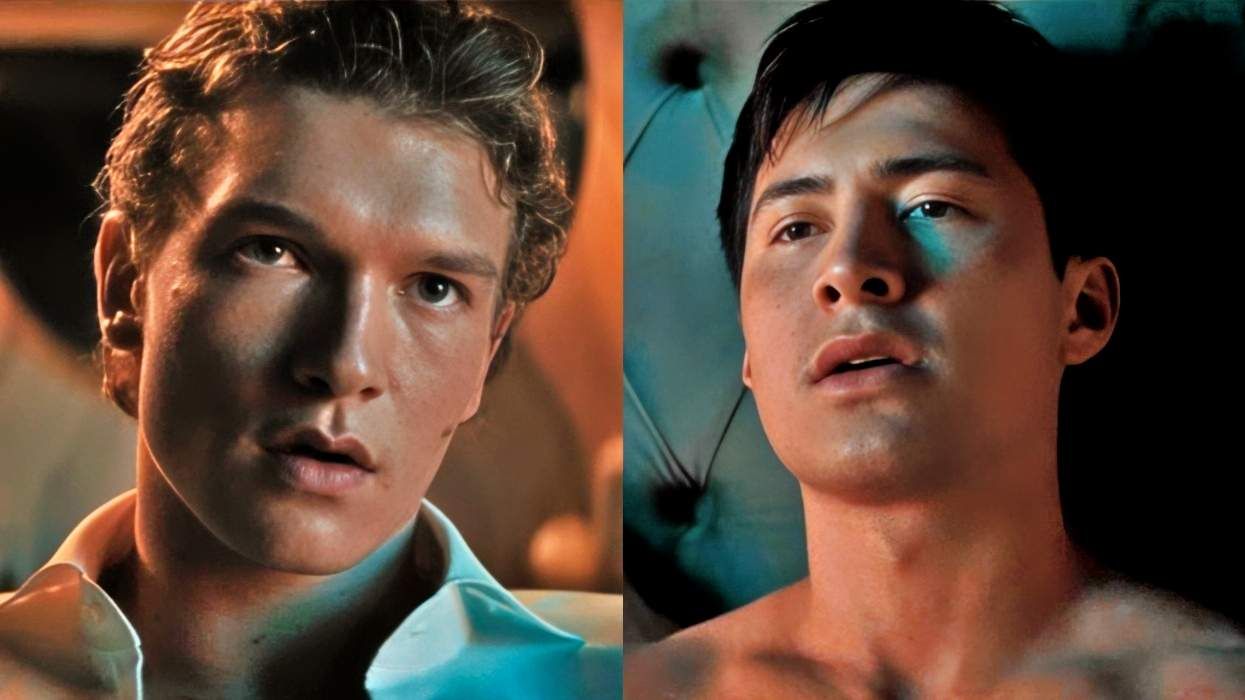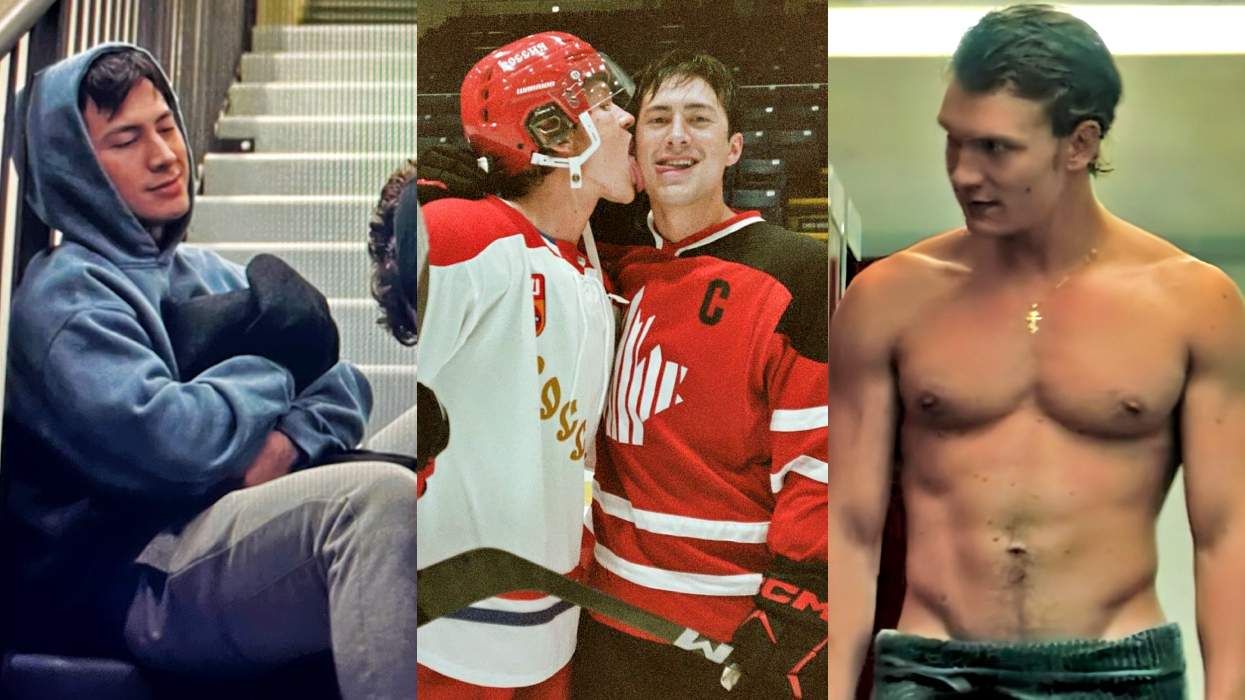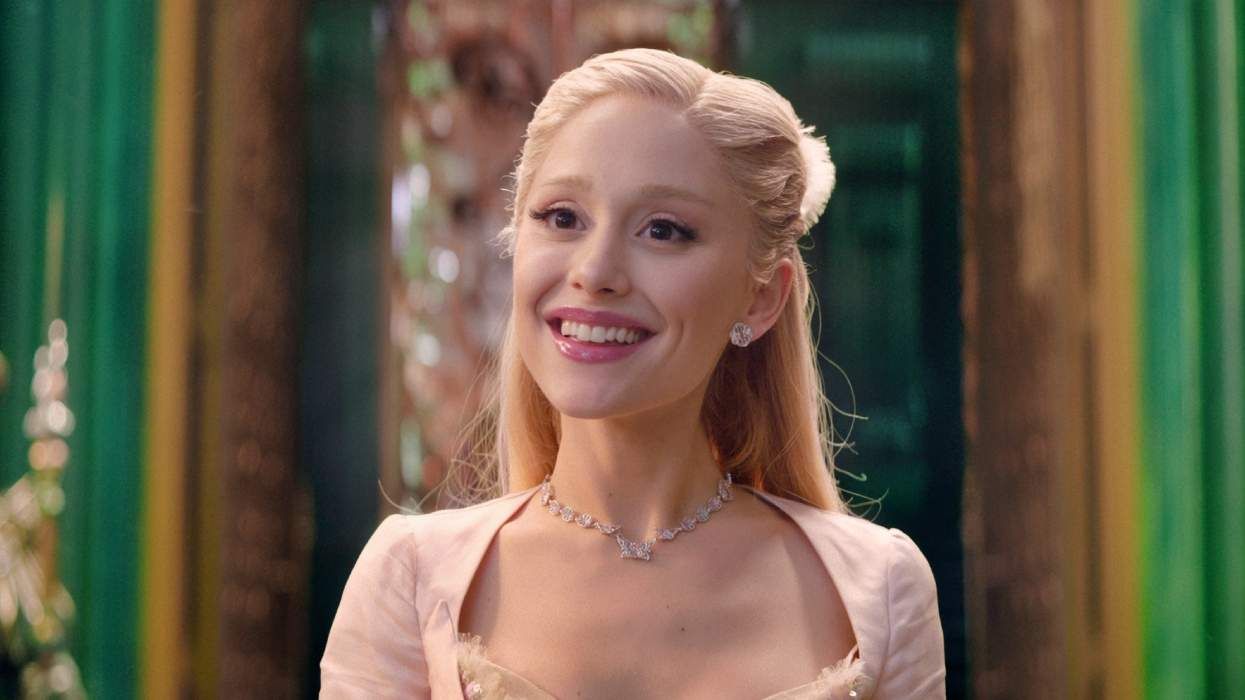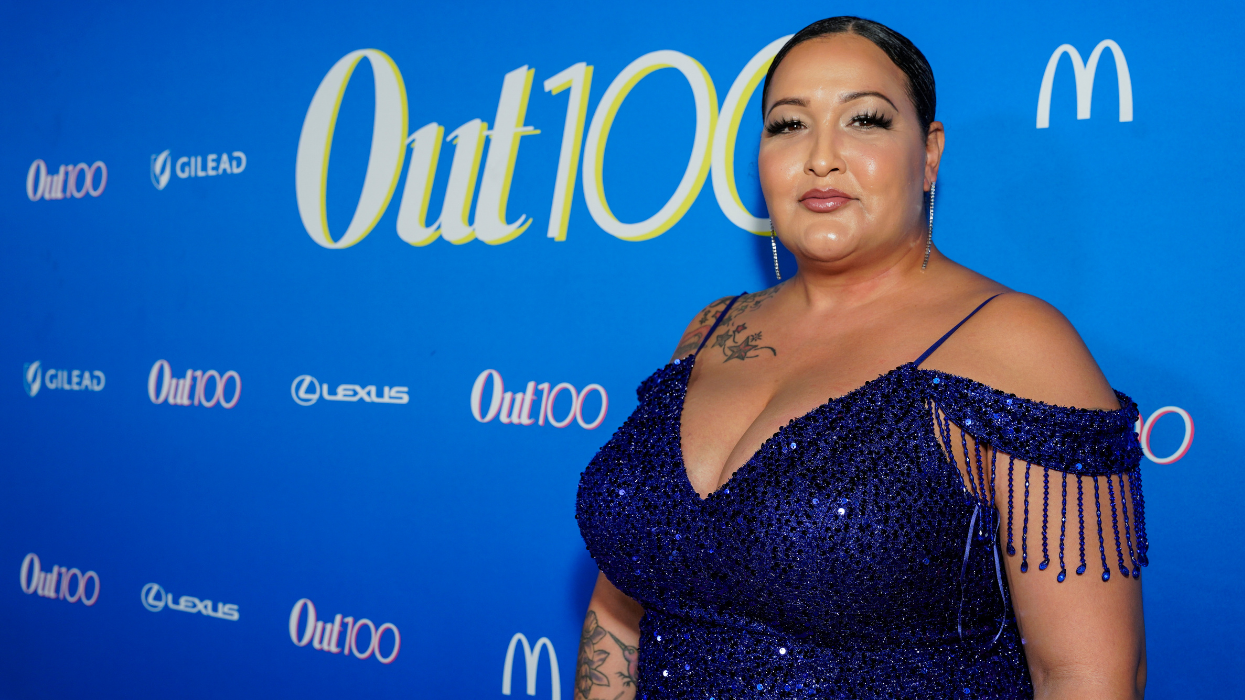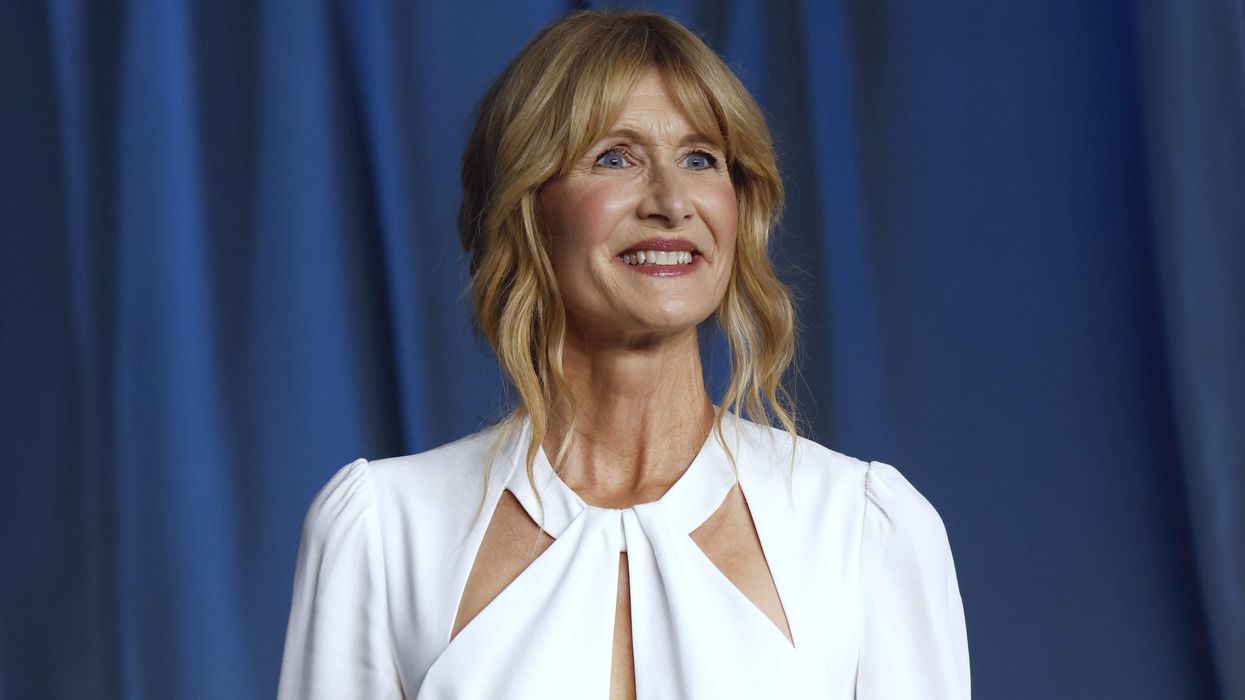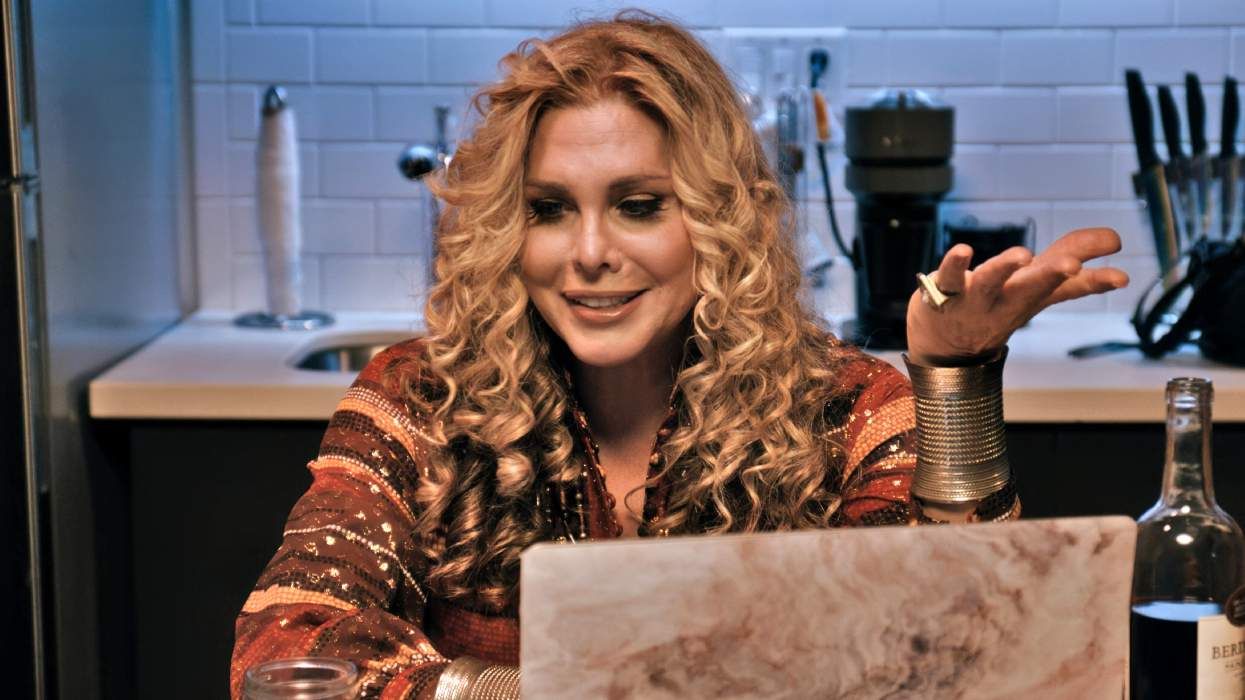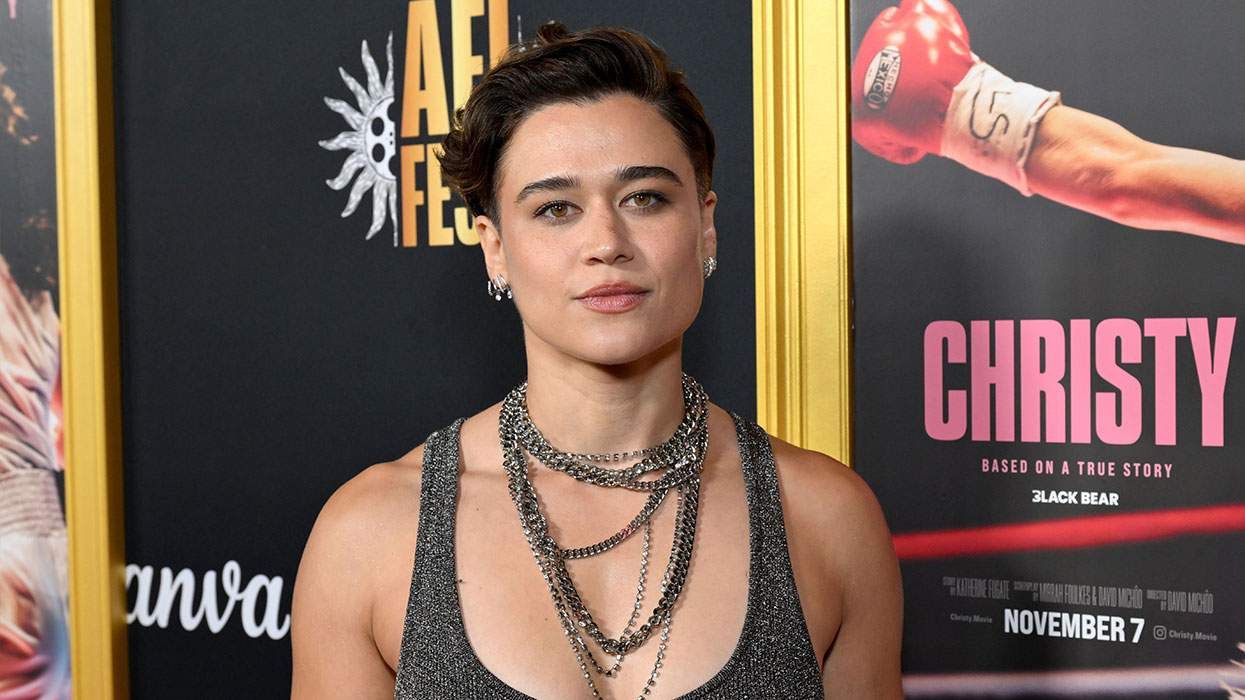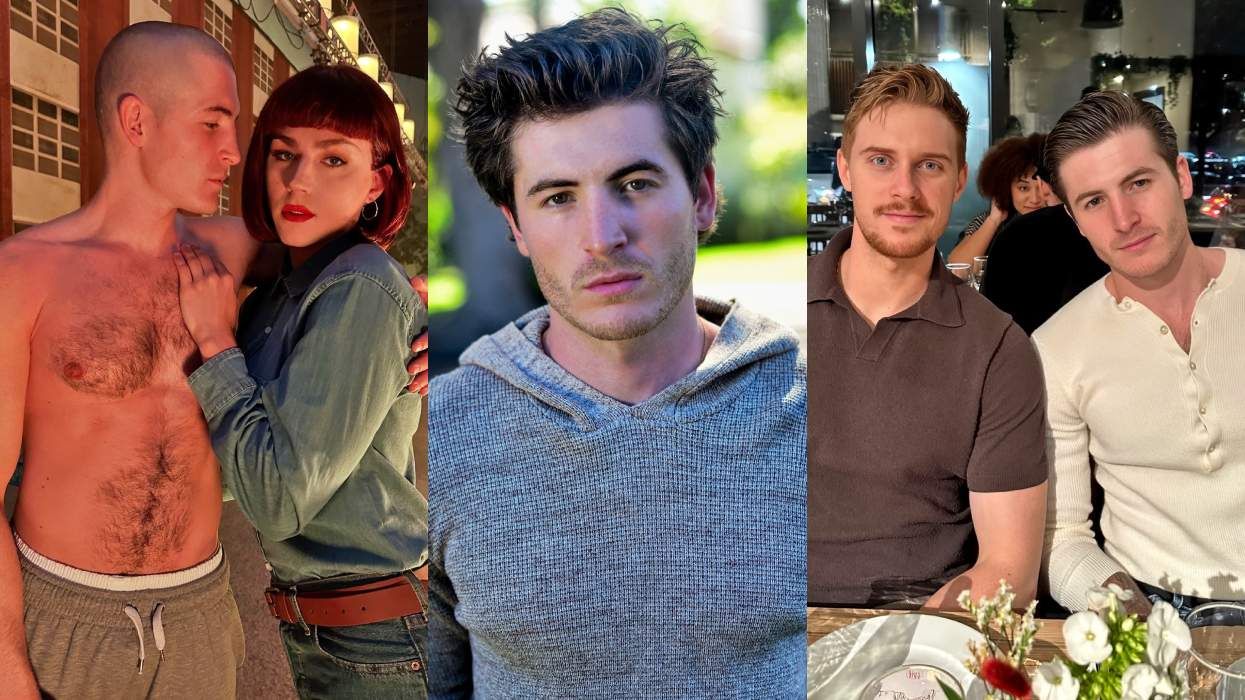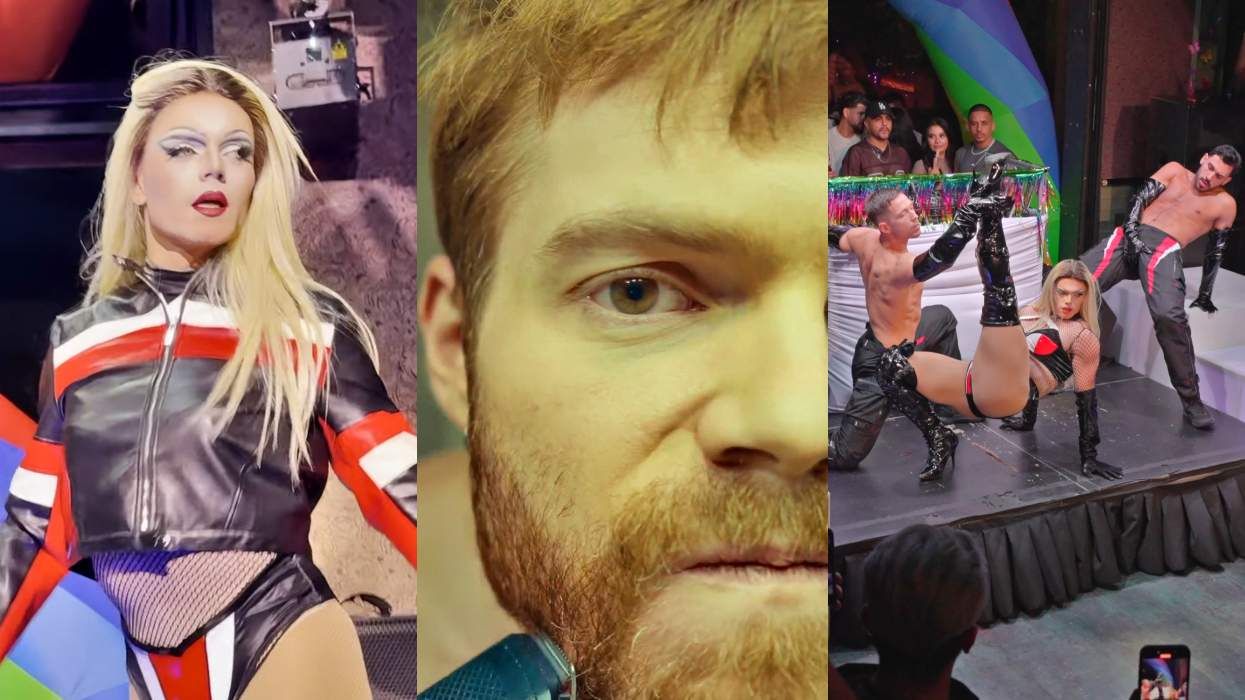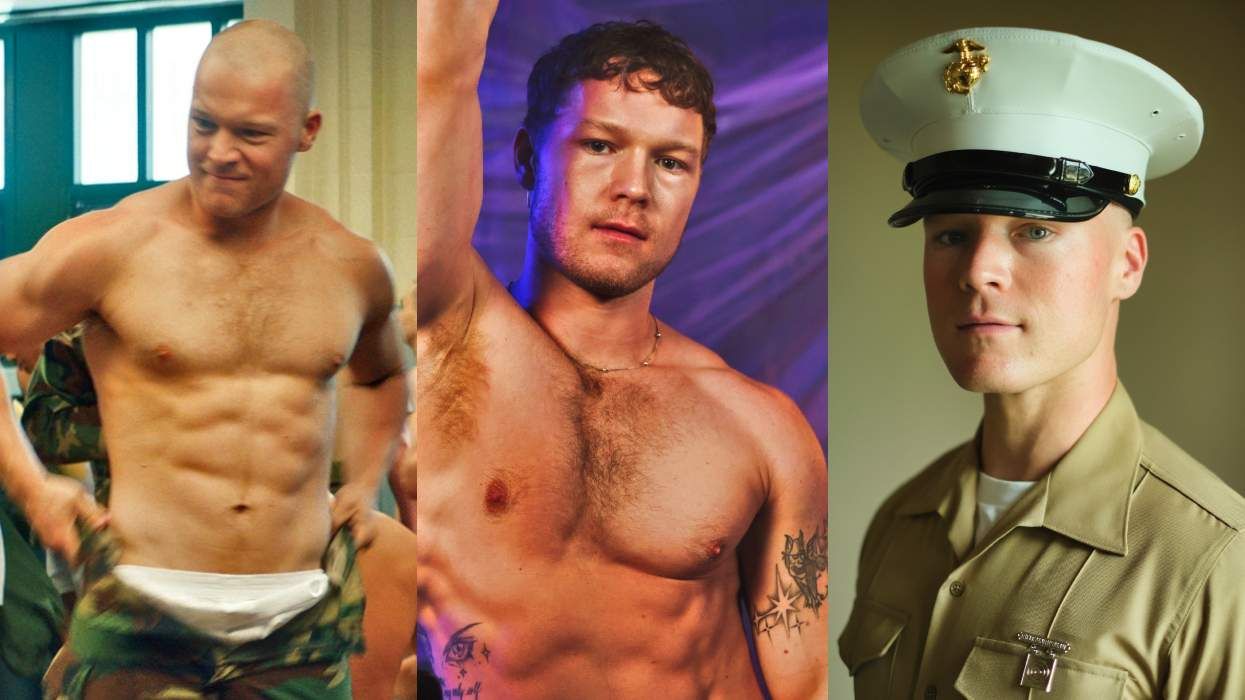Comedians John Early and Kate Berlant have a new gut-busting web-series out this week on Vimeo, called 555. The Andrew DeYoung-directed series, made up of five mini-movies, follows characters leading archetypal lives in the Los Angeles entertainment industry.
Related | John Early's Best Year Ever: Search Party, Little Lies, & Kissing Famous Boys
In one short, Early plays a lip-synching pop star stealing Berlant's original song, while another follows a stage mom dragging her silent son to an audition; one focuses on two students in Kristen Johnston's acting class and another profiles two extras dressed as aliens in a big budget film. The final short centers on two agents racing through Hollywood from event to event.
The series is gorgeously shot and, thanks to DeYoung, has a notably cinematic feel to it, despite being hosted exclusively on Vimeo. Early and Berlant's characters are not mere caricatures, but fleshed out people who experience sorrow, anger and jealousy--it's just icing on the cake that each short happens to have us doubled over in laughter, as well.
OUT sat down with Early and Berlant to talk about creating these worlds.
These episodes are about different facets of Hollywood. How did you create your characters and stories?
John Early : Our ambitions as a duo are multifaceted--we don't just have one dream or style that we seen ourselves doing. We've always wanted to do a million different things. And one of those things has been tropey, archetypy, single white female psychological thriller--that style. So the first [episode], "Pop," is one of our oldest ideas as a duo. We wanted to do some very dark tale about lipsynching to a song that Kate wrote, which is loosely based on the hit Debbie Deb song, "When I Hear Music." We never had the money to make it, so we just waited it out--waited until our careers exploded and we were able to get some money behind these. Basically it just comes from a place of wanting to see each other in these Oscar-winning roles, like Kate as the single, harried mother.
Are you writing for each other?
JE: Yeah, it's about realizing our dreams, but with the irony of knowing these are roles we would probably never get cast in. We're not leaving it up to Hollywood to do this. We're championing ourselves in these meaty roles. Once we started working with Andy, who we've done some really great shorts with before this, he has this really cinematic style and they each became their own little nuanced thing. Instead of campy Hollywood satire, they became tender and sweet.
How did you find Andrew DeYoung?
Kate Berlant: We found him in a public pool. No, we found him through Twitter, or something. He'd reached out about a video I had made, called "Rock Collection." So we met up with him, and said, "Let's make something." The first video we did was called "Santa Monica," and features John and myself as a straight couple that had tribal tattoos on our faces. And we met up with Andy--it was a one day shoot, just us and Andy--and we improvised all day. Andy went away with it and edited this really graceful short. He has cinematic aspirations, and [works] in comedy and improv. These shorts, 555, though probably not apparent, are largely improvised.
Which shorts were the most challenging to film?
JE: Most challenging--there were so many different challenges in different points of the process. The most challenging to edit, which was a surprise to all of us, was "Pop," the first one. In writing, it wrote itself so quickly. It had a very clear structure. Then in editing, it was hard to hit the heights we knew it was supposed to hit dramatically. And it still had to be funny. Also I had raging Sciatica at the time we were shooting that I had not gotten looked at. So pushing Kate's wheelchair with Sciatica was really hard. Then I think the most fun one--it's so hard to choose--I just think "Aliens" was so fun, and so simple in its execution.
KB: And it's the funniest one, really--definitely characters that are not ourselves, but the closest to us.
Well, you see those people every day in Los Angeles.
KB: Maybe the most challenging one for me, just in a superficial way, was playing the mom, because I have no accent training. And I had this tendency of, "I'm going to go into an accent." Literally I can just Google, and I never did it. John was like, "It's fine, who cares." And I just kind of had to pretend that I knew what this accent was. So in that way it was challenging.
Related | Out Comedian John Early on Gay Sex Jokes & Conquering the Queer Audience
So guest stars--you have the amazing Kristen Johnston. Were her scenes improvised?
JE: Kristen was my acting teacher at NYU my third year. I was such a fan of hers before she was my teacher, and I was so deeply looking forward to it. In some ways those scenes really do mirror how she taught. It was very conversational and then would suddenly get very personal. And people would cry. She was really probing and great. When we asked her to do it, we didn't write her a script--it was more just like placeholders: "This is the kind of speech we want you to give, this is where we get up to do a scene and you immediately grill both of us. This is where you're trying to get me to say goodbye to my father." So she was reading the script a lot, and on the day we shot, she was like, "You just want me to teach a class, right?" We said, "Totally." She said, "Ok, I'm just going to teach a class."
KB: It was beautiful.
JE: It was so beautiful and the easiest thing we shot the entire time. We did both of those scenes essentially in one take, except for a moment where we realized we didn't have a certain angle. We did it all in real time--we didn't stop anything. It took no time because she's just such a phenomenally good actress and when I'm improvising, I feel like I'm frantically generating text in my brain, like I'm at a typewriter, to keep up with Kate. Then there's some people like Kate, or Kristen Johnston, who it's not even about text--it's just flowing for them. She was just in a state of flow. It was shocking.
KB: It was really hard to edit, because she said things what were so profound.
JE: When she was giving that first speech, she was saying stuff that was so in Kate and my shared philosophy as comedians, and as friends. We never told her to say that stuff. It was really moving. And she was very vulnerable - she told real stories from her career that were very dark. We were so lucky we got her - she's so brave.
KB: And Jane Adams is the mom in the audition short--she's criminally underused. It was very crazy for me to even know her, because she's one of the stars of Happiness, which changed my life when I saw it. So it was just really wild to have her be in it.
So Trump--Michael Moore spoke at a rally this month and said that comedy is the one thing that's actually getting to Trump. Do you see your comedy as a potential weapon in this dark political era?
KB: That's so interesting because I've been of the opposite mindset in a way. Although I do think so many people have been glued to social media during Trump's campaign, and now, dealing with the aftermath of him hijacking the election. And I absolutely tell jokes on Twitter--that's my coping mechanism, and a way to express anger, and to commiserate with people, of course. I guess with someone like Trump, it's potentially true.
JE: The point of comedy is to puncture ego.
KB: And he's pure ego.
JE: I am more and more scared of the way we are doing it. SNL will fuck with him, which they absolutely should be doing, and then, is something going to happen where he gets so upset he goes on Twitter and then we wake up and he blows up a country? This idea that making fun of him is getting to him, which is clearly true--that's a thing.
KB: He's so fragile. I'm with you. I think he's going to do whatever he feels--he's a punisher. He'll want to punish people that are making him feel smaller. He's pure toxic masculinity. My mom texted me recently and was like, "Be careful with your Twitter. You don't know who's monitoring you."
JE: My parents were like, "We're going to get shot at your show."
KB: I think more than ever, rise up. Be on Twitter less. I say that as someone who's donated my life to the Internet and doesn't make eye contact anymore. I think we should put our phones down and do something in the real world--something physical. Not exercise, but something.
Do either of you have feature-length plans?
JE: We don't have any plans of expanding any of these specific shorts, but I definitely think a byproduct of doing 555 is these will become a calling card for this style. A lot of dumb people probably have a very small idea of what Kate and I can do as collaborators and as performers. I'm sure a lot of people see us and go, "You guys should do some bitchy show where you're best friends." A lot of people over the years have said, "You're stuff is mean."
KB: We've never related to that--the classic thing of "fag hag," which can be hilarious, but... It's always weird when someone comes up to us and describes our stuff as "mean," somehow. We've never related to that. So hopefully with the characters in 555--it does get sad in places and devastating in a way--but we hope it's a loving portrayal. Not just us making fun of people who want something.
555--I know it's the beginning of a fake phone number. Is that why you chose it?
JE: We wanted to do something simple that indicated it was five shorts. And the phone number thing was indicative of movies and cinema, which attracted us.
I'm curious how the five shorts intersect. There are a few moments when the scenes blend together.
JE: We wanted you to see in the viewing experience them intersecting, but we didn't want to force it like, "The waitress from that is now the main character in this scene." We didn't want to do that, but it was fun to, purely in editing, discover ways like, "Oh, this boy looking out the window can see the agents crawling through the tube." It's just a fun way to watch to remind you all these people are living in the same world.
Watch the 555 trailer, below.


